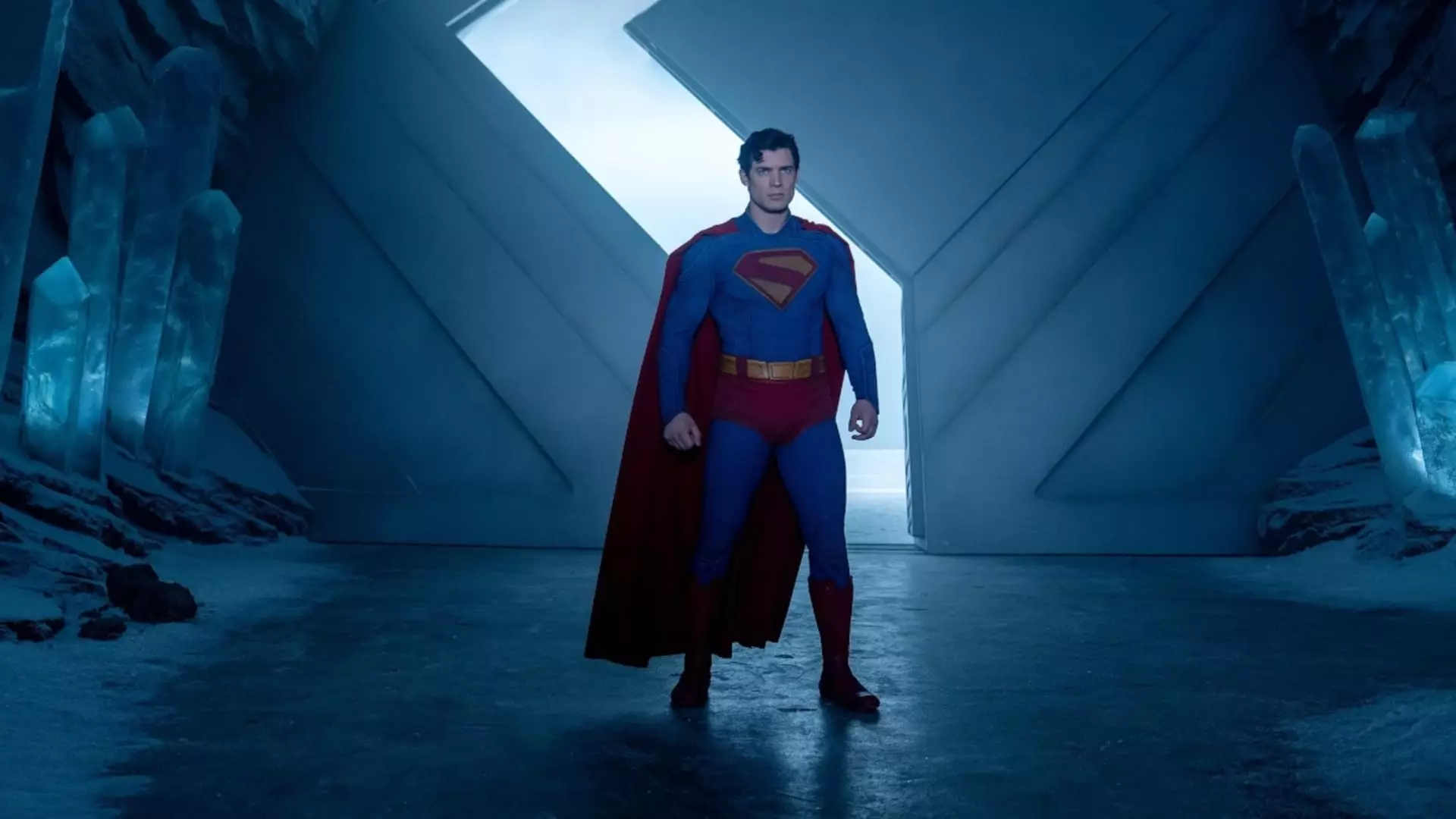The recent release of Warner Bros.’ “Superman” marks a pivotal moment in DC’s cinematic saga—an ambitious reimagining under the strategic guidance of James Gunn and Peter Safran. It’s more than a movie; it’s a statement that Warner Bros. is serious about restoring its legacy amidst the crowded superhero genre. While initial preview numbers are promising, they also lay bare the high stakes involved. The film drawing $22.5 million from preview showings signifies a substantial start, yet it pales in comparison with legacy benchmarks set by past giants like “The Dark Knight Rises” or “Batman v. Superman.” This disparity isn’t merely about numbers but highlights the brutal reality of industry expectations clinging to the shadow of intense competition and franchise fatigue.
Successfully launching a blockbuster in today’s cinematic landscape demands more than just a recognizable hero; it requires a combination of innovative storytelling, star power, and marketing mastery. Scripted as the inaugural project of Warner Bros.’ new decade-long plan to reboot and revitalize the DC universe, this film is under immense pressure to succeed. The film industry, especially superhero cinema, has become a social and cultural mirror—either reflecting or shaping societal values and aspirations. Therefore, Warner Bros. is betting that this new “Superman” can re-engage the audience with the character’s core themes of hope and responsibility, but the film’s final box office numbers will ultimately tell us if they’ve hit the mark or fallen short.
Box Office Prospects and Industry Context
Looking ahead, analysts predict a three-day opening between $130 million and $140 million, positioning “Superman” as a strong contender for the summer’s top spot, provided it sustains audience interest. This projection aligns with the opening figures of other recent major superhero hits like Matt Reeves’ “The Batman.” Still, it’s a far cry from the record-breaking openings of “Batman v. Superman” or “The Dark Knight,” which set the bar at over $150 million. These historic figures serve as benchmarks for industry success but also as warnings that fans have grown more discerning. They crave fresh narratives and meaningful characterizations, not just superhero spectacle.
Yet, Warner Bros. appears to have learned from past mistakes by emphasizing a fresh aesthetic and thematic approach. The film’s respectable 83% critics’ rating on Rotten Tomatoes indicates a generally positive reception, which is vital for sustaining box office momentum. A superhero film’s success today depends heavily on word-of-mouth and cultural relevance. If “Superman” can tap into current societal themes—such as hope in turbulent times or the burden of great power—it might transcend mere spectacle and become a defining film within the genre’s evolution.
The Bigger Picture: Cultural Impact and Franchise Potential
The resurrection of Superman’s cinematic presence also symbolizes Warner Bros.’ broader strategy—redefining the superhero narrative from the ground up. In an era dominated by Marvel’s interconnected universe, Warner Bros. is appealing to a different audience: those yearning for seriousness, depth, and a connection to traditional heroic archetypes. Gunn and Safran’s track record with Marvel, including “Guardians of the Galaxy,” suggests they understand the importance of balancing humor with authentic heroism. Their approach to Superman could either rejuvenate the character or alienate fans longing for more familiar tones.
From a political and cultural standpoint, this reboot exemplifies how major studios are increasingly aware of societal shifts. They are attempting to craft stories that resonate with contemporary audiences without losing the essence of their characters. This tightrope walk is inherently risky—fail to innovate sufficiently, and the franchise risks obscurity; stick too rigidly to tradition, and it risks irrelevance. Warner Bros. seems to be betting on a middle ground, hoping that a well-crafted, hopeful Superman can invigorate the DC universe and broaden its appeal.
The real question lies beyond immediate box office figures: can “Superman” serve as the catalyst for sustained franchise growth? Will it inspire a new generation of fans or become just another fleeting blockbuster? The upcoming weeks and months will reveal whether Warner Bros.’ gamble has paid off or if the hope for a superhero renaissance was merely a mirage in an increasingly fragmented entertainment landscape.

